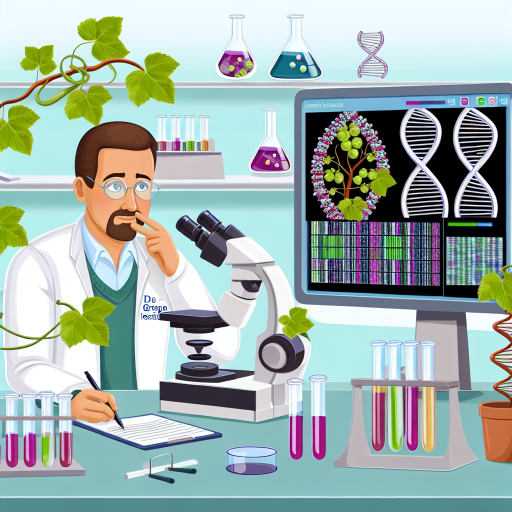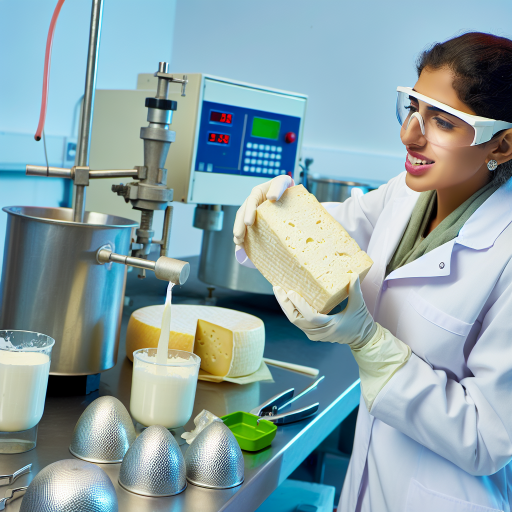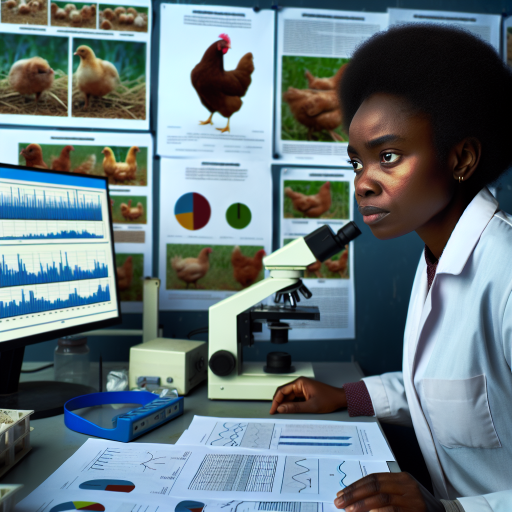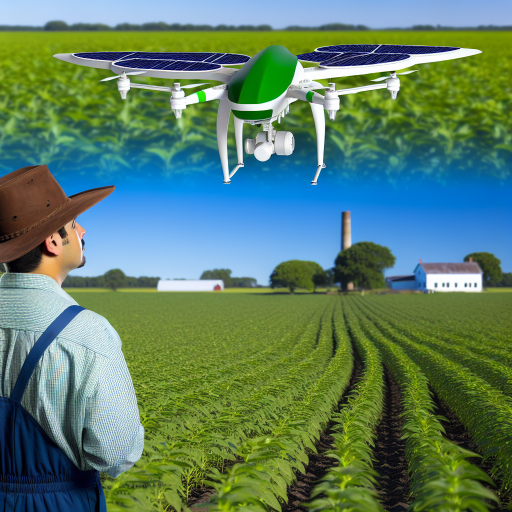Overview of the Importance of Food Science
Food science plays a crucial role in ensuring the safety and quality of the food we consume daily.
Rapid Advancements in Technology
The field of food science has benefited greatly from technological advancements.
This has led to improved processes and products.
Artificial Intelligence and Data Analytics
AI and data analytics are revolutionizing food science.
They provide insights into consumer preferences.
These tools also optimize production processes.
Alternative Proteins and Plant-Based Nutrition
The increasing popularity of plant-based diets has sparked innovation in alternative proteins.
This creates sustainable options for consumers.
Nanotechnology and Food Packaging
Nanotechnology is being used to develop smarter food packaging materials.
These materials can extend shelf life and minimize food waste.
Biofortification and Functional Foods
Biofortification techniques are improving the nutrient content of crops.
This leads to the development of functional foods with enhanced health benefits.
Sustainable Agriculture and Food Security
Food science is working towards sustainable agricultural practices.
This aims to ensure food security for a growing global population.
Personalized Nutrition and Health
Advances in food science are enabling personalized nutrition plans.
These cater to individual health needs and preferences.
Sustainable Practices:
Food scientists today are increasingly focusing on sustainable practices to address the environmental impact of food production.
By implementing eco-friendly solutions, these professionals are shaping the future of food science.
One of the key trends in the food industry is the shift towards sustainable food production methods.
This involves minimizing waste, conserving resources, and reducing the carbon footprint of food manufacturing processes.
Transform Your Career Today
Unlock a personalized career strategy that drives real results. Get tailored advice and a roadmap designed just for you.
Start NowFood scientists play a crucial role in developing and implementing these sustainable practices.
They are at the forefront of creating innovative solutions to make food production more environmentally friendly.
Food scientists are involved in developing new technologies, processes, and ingredients that promote sustainability and reduce the negative impact of food production on the environment.
Several companies are leading the way in adopting sustainable practices in the food industry.
For example, companies like Patagonia Provisions and Danone have made significant investments in sustainable agriculture, responsible sourcing, and eco-friendly packaging.
These companies serve as role models for others in the industry.
Food scientists working for these forward-thinking companies are constantly researching and developing new ways to make food production more sustainable.
From utilizing renewable energy sources to reducing food waste, these professionals are driving positive change in the industry.
Sustainable practices in food science are a growing trend that is here to stay.
Food scientists have a crucial role to play in creating eco-friendly solutions that benefit both the environment and consumers.
By following the lead of companies that prioritize sustainability, the future of food science looks bright.
Personalized Nutrition
Personalized nutrition is a growing trend that focuses on tailoring dietary plans to meet individual needs.
- Exploration of personalized nutrition based on individual needs
- Role of food scientists in developing personalized dietary plans
- Impact of personalized nutrition on the future of food science
Personalized nutrition is all about understanding an individual’s unique requirements based on factors like age, gender, activity level, and health conditions.
Food scientists play a crucial role in analyzing data and creating customized meal plans that cater to specific nutrient needs of individuals.
Personalized nutrition is revolutionizing the way we approach diet and health, paving the way for innovative solutions in the food industry.
Benefits of Personalized Nutrition
Here are some of the key benefits of personalized nutrition:
- Optimized Nutrient Intake
- Improved Health Outcomes
- Enhanced Performance
- Weight Management
Individuals can ensure they are meeting their specific nutrient needs for optimal health and well-being.
Customized dietary plans can lead to better management of chronic conditions like diabetes, heart disease, and obesity.
Athletes and active individuals can benefit from personalized nutrition plans to improve their energy levels and performance.
Showcase Your Business Today
Reach thousands of readers actively exploring professional services. Publish your business profile and grow your audience now.
Publish NowPersonalized nutrition can help individuals achieve and maintain a healthy weight by focusing on their unique requirements.
Challenges in Implementing Personalized Nutrition
While personalized nutrition has numerous benefits, there are several challenges in its implementation:
- Data Collection and Analysis
- Cost and Accessibility
- Ethical Considerations
Gathering and analyzing individual data can be time-consuming and complex, requiring advanced technology and expertise.
Customized meal plans may be expensive and not easily accessible to everyone, limiting widespread adoption of personalized nutrition.
Ensuring privacy and confidentiality of personal health data is crucial in the development of personalized nutrition plans.
Future Implications of Personalized Nutrition
Personalized nutrition is poised to transform the future of food science in several ways:
- Innovative Food Products
- Healthcare Integration
- Advancements in Technology
Companies are likely to develop personalized food products and supplements tailored to individual nutrient needs.
Personalized nutrition will become integrated into healthcare systems, leading to more targeted and effective treatment plans.
Technological advancements will enable more accurate and efficient data analysis for personalized nutrition recommendations.
Personalized nutrition is a promising trend in food science that has the potential to revolutionize the way we approach diet and health.
By leveraging data-driven insights and innovative solutions, personalized nutrition can empower individuals to make informed choices that support their unique needs and goals.
Gain More Insights: Extension Agents’ Role in Food Systems
Alternative Proteins:
As the demand for sustainable food options continues to rise.
Alternative protein sources like plant-based and lab-grown meats are gaining traction in the food science industry.
-
Analysis of the rise of alternative protein sources:
Plant-based proteins, such as those derived from soy, peas, and mushrooms, are becoming increasingly popular among consumers looking for environmentally-friendly options.
Additionally, advancements in technology have allowed for the creation of lab-grown meats that closely mimic the taste and texture of traditional animal products.
-
Discussion on the challenges and opportunities for food scientists:
Food scientists working in the field of alternative proteins face a unique set of challenges, such as ensuring the nutritional quality and safety of these products.
However, this also presents an exciting opportunity to innovate and create new and diverse protein sources that can cater to a wide range of dietary preferences.
-
Potential impact on traditional meat production and consumption:
The rise of alternative proteins has the potential to disrupt traditional meat production and consumption patterns.
As more consumers opt for plant-based and lab-grown meats, the demand for traditional animal products may decrease.
This shift could have significant implications for the environment, as traditional meat production is known to have a high carbon footprint.
The trend towards alternative proteins represents an exciting and rapidly evolving area in food science.
By exploring new protein sources and technologies, food scientists have the opportunity to create a more sustainable and diverse food system.
This system can meet the changing needs and preferences of consumers around the world.
Discover More: Effective Communication in Agricultural Marketing
Importance of Food Safety and Traceability
Ensuring the safety of our food supply is crucial to prevent foodborne illnesses and outbreaks.
Traceability in food production helps to track the origin of ingredients, ensuring quality and authenticity.
Role of Food Scientists in Ensuring Food Safety
Food scientists play a pivotal role in developing innovative methods to enhance food safety.
Through research and testing, they identify potential risks and implement solutions to prevent contamination.
By staying abreast of emerging pathogens and trends, food scientists help to safeguard public health.
Examples of Technologies Improving Food Traceability
Advancements in technology have revolutionized the way we track and monitor food products.
Blockchain technology, for instance, enables a transparent and secure system for tracing food origins.
RFID tags and sensors help to monitor temperature, humidity, and other factors affecting food quality.
DNA sequencing allows for precise identification of pathogens, ensuring swift response to outbreaks.
Smart packaging with QR codes provides consumers with detailed information about a product’s journey.
Food safety and traceability are indispensable components of the future of food science.
By leveraging technology and expertise, we can ensure a safer and more transparent food supply chain.
Discover More: Top Environmental Challenges in Agriculture Today
Functional Foods:
Functional foods are a hot topic in the food science industry today.
- Exploration of functional foods and their health benefits.
- Role of food scientists in developing functional foods enriched with vitamins, minerals, and other nutrients.
- Potential impact on consumer health and wellness trends.
Food scientists are constantly exploring new ways to enrich foods with vitamins, minerals, and other nutrients to enhance their health benefits.
Food scientists play a crucial role in developing functional foods that offer specific health benefits, such as improved digestion or boosted immune system.
Consumers are increasingly looking for foods that not only satisfy their hunger but also provide added health benefits, leading to a growing demand for functional foods.
As food scientists continue to innovate and create new functional foods, the future of food science looks promising in meeting the evolving needs of consumers seeking healthier and more functional food options.
Find Out More: Livestock Manager: Salary and Job Outlook
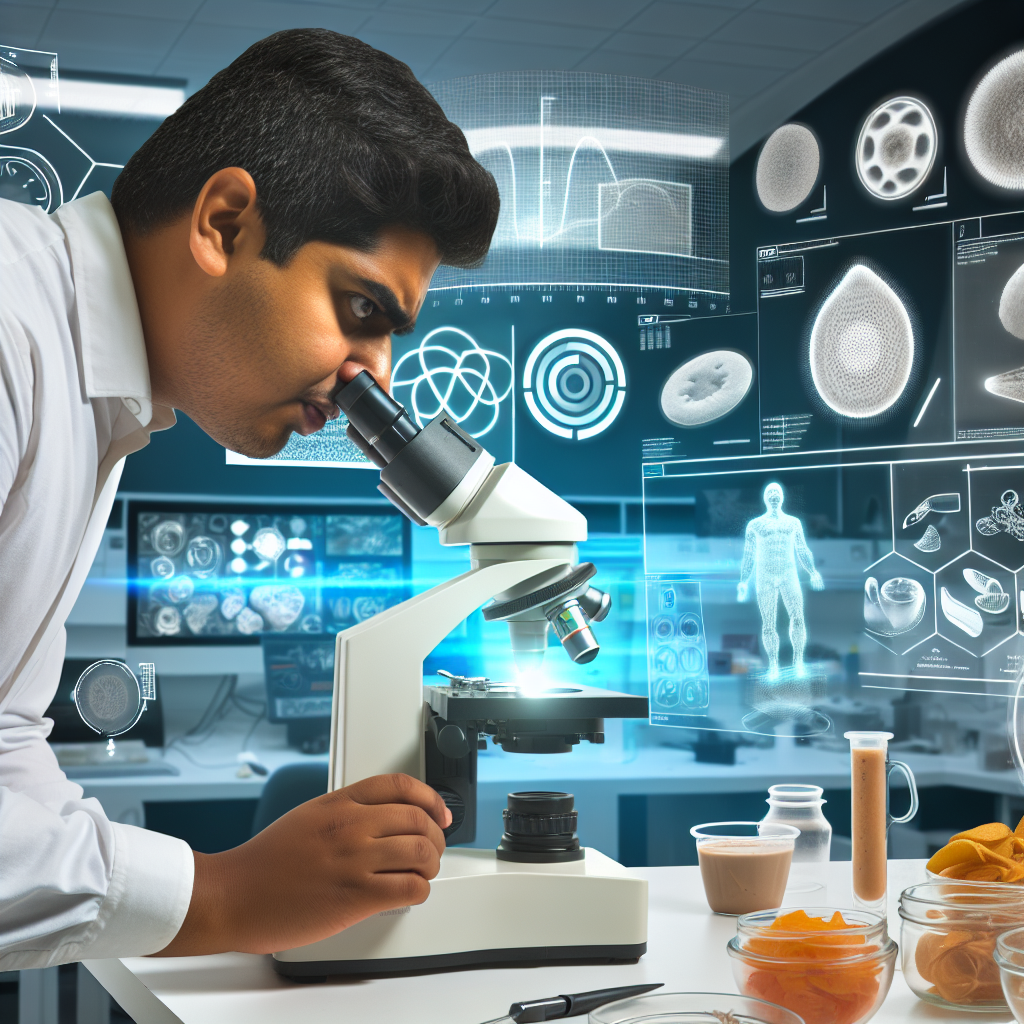
Robotics and Automation
Robots and automation are revolutionizing the food industry by streamlining production processes and enhancing efficiency.
Integration of Robotics and Automation in Food Production Processes
- Robotic arms are being used in packaging and sorting tasks to speed up production.
- Automated systems are being integrated into food processing lines for consistency and precision.
- Drones are being used for crop monitoring and spraying pesticides in agriculture.
Role of Food Scientists in Designing and Implementing Automated Systems
- Food scientists play a crucial role in researching and developing automation technologies for the food industry.
- They collaborate with engineers to design robotic systems that meet the specific needs of the food production process.
- Food scientists are responsible for testing and implementing automated solutions to improve production efficiency.
Benefits of Robotics and Automation in Improving Efficiency and Quality Control
- Automation reduces the risk of human error in food processing, leading to improved product quality.
- Robotic systems can operate 24/7, increasing production output and efficiency in the long run.
- Automation allows for real-time monitoring of production processes to ensure consistency and quality control.
Robotics and automation play a vital role in shaping the future of food science by revolutionizing production processes and enhancing efficiency and quality control.
Food scientists will continue to innovate and implement automated systems to drive advancements in the food industry.
Showcase Your Business Today
Reach thousands of readers actively exploring professional services. Publish your business profile and grow your audience now.
Publish NowDigitalization and Big Data:
- Importance of data analytics and digital technologies in food science research
- Role of food scientists in analyzing big data to drive innovation and product development
- Examples of how big data is revolutionizing the food industry
Importance of Data Analytics and Digital Technologies in Food Science Research
In today’s digital age, data analytics plays a crucial role in food science research.
By utilizing advanced technologies, food scientists can gather and analyze massive amounts of data to gain valuable insights into consumer preferences, market trends, and product formulations.
This data-driven approach allows researchers to make informed decisions and develop innovative solutions to address pressing issues in the food industry.
Role of Food Scientists in Analyzing Big Data to Drive Innovation and Product Development
Food scientists are at the forefront of utilizing big data to drive innovation and product development in the food industry.
By leveraging data analytics tools, they can identify patterns, trends, and correlations within vast datasets to generate actionable insights.
This enables them to optimize processes, improve product quality, and create tailored solutions that meet evolving consumer demands.
Examples of How Big Data is Revolutionizing the Food Industry
The integration of big data in the food industry has led to significant advancements and transformations across various sectors.
For instance, in agriculture, data analytics is being used to optimize crop production, enhance yield forecasting, and improve sustainability practices.
In food manufacturing, big data is utilized to streamline supply chain operations, monitor quality control, and enhance food safety protocols.
Moreover, in marketing and consumer research, data analytics enables companies to personalize marketing campaigns, develop targeted products, and enhance customer engagement.
The adoption of digital technologies and big data in food science research is revolutionizing the way we approach food production, innovation, and consumption.
By harnessing the power of data analytics, food scientists can drive meaningful change, foster creativity, and shape the future of the food industry.
Recap of Key Trends
In summary, key trends in food science include plant-based alternatives, personalized nutrition, and sustainable practices.
Call to Action
Food scientists must adapt to these trends by integrating technology, conducting research, and collaborating with other disciplines.
Implications on the Food Industry
These trends will revolutionize food production, distribution, and consumption.
They will also impact global food security by promoting sustainable practices.
The future of food science is exciting and dynamic.
It requires continuous learning, innovation, and collaboration across various fields to meet the growing demand for nutritious and sustainable food.
Food scientists play a critical role in shaping the future of food.
It is essential for them to stay ahead of the curve and embrace innovation to address the challenges and opportunities ahead.
By understanding and leveraging these trends, food scientists can contribute to a healthier, more sustainable future for the food industry and global food security.
Additional Resources
Food Security in the U.S. – USDA ERS
A Look at Agricultural Productivity Growth in the United States, 1948 …
[E-Books for Sale]
The Big Book of 500 High-Paying Jobs in America: Unlock Your Earning Potential
$19.99 • 500 High-Paying Jobs • 330 pages
Explore 500 high-paying jobs in America and learn how to boost your career, earn more, and achieve success!
See All 500 High-Paying Jobs of this E-Book
1001 Professions Without a Degree: High-Paying American Jobs You Can Start Now
$19.99 • 1001 Professions Without a Degree • 174 pages
Discover 1001 high-paying jobs without a degree! Unlock career tips, skills, and success strategies for just $19.99!

